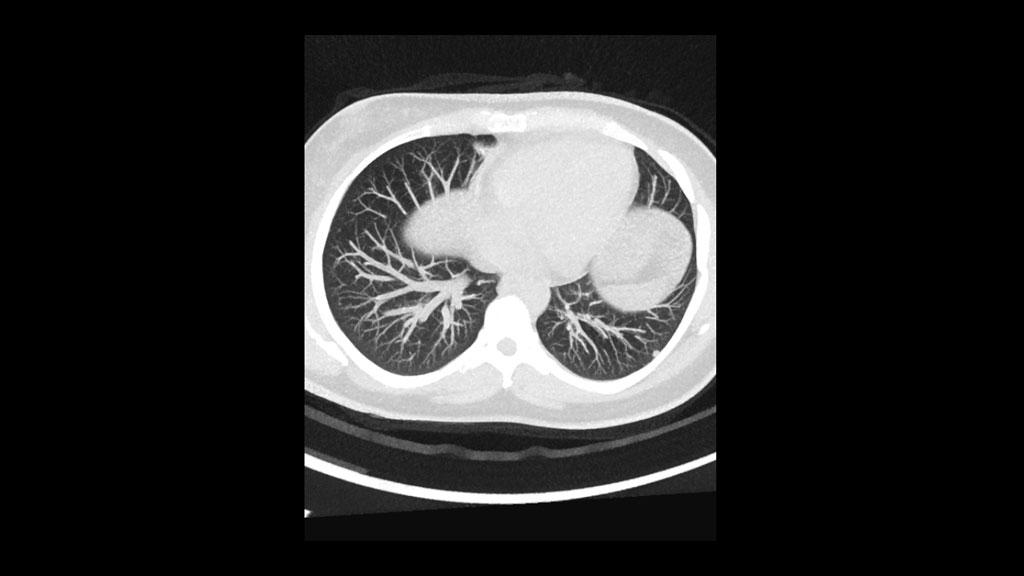With 1.6 million deaths each year, lung cancer is the most frequent gender-independent cause of cancer mortality worldwide. Since symptoms usually do not emerge until an advanced stage, chances of recovery are very low. Studies by the National Lung Screening Trial Research Team of the National Cancer Institute and by the International Early Lung Cancer Action Program, both published in the New England Journal of Medicine, show that early screening can reduce these mortalities by ≥20% since up to 80% of the cancers can be identified at an early stage [2,3]. These results were recently confirmed by the Dutch-Belgian NELSON study, which showed a 26% improvement in mortality and was presented at the World Conference on Lung Cancer on September 26th 2018.
While the benefits of lung cancer screening are accepted among experts and have led to recommendations from medical and public health organizations, the transferability of the results to the German healthcare system and the economics of a lung cancer screening (LCS) program in Germany was still in question.

Hamburg study reveals cost-effectiveness
The new study [1] from the Hamburg Center for Health Economics (HCHE) provides a detailed analysis of the costs and benefits of LCS within the German healthcare system. The incremental cost-effectiveness ratio (ICER) was €19,302 per life year saved. The quality-adjusted life years (QALY) was higher at €30,291. Previous studies in several other countries have yielded similar results, determining that LCS with low-dose CT scans is cost-efficient according to the national “willingness-to-pay” threshold [4-8]. The HCHE study is based on actual cost data from existing treatment schemes. In the near future, treatment costs are expected to grow significantly due to the approval of new high-priced drug treatments for late-stage disease. Early detection of lung cancer can reduce the need for late-stage treatments and mitigate the burden of those high-priced drugs on the healthcare system, tilting the balance further in favor of LCS. For example, early detection through LCS could help to avoid the costs of immunotherapy, which has only recently been approved and which is normally only applied in later stage lung cancers where the chance of survival is lower. The exact impact on cost efficiency will be a topic of future research.
Ultra-low-dose CT imaging supports LCS implementation
With increased scans comes increased exposure to radiation. A modern ultra-low-dose CT examination for LCS applies approximately 1/10 of the annual regular background radiation dose in Germany. Available supporting studies for the efficacy of low-dose CT lung cancer screening have led to discussions in the medical community about implementing LCS programs population-wide.
Siemens Healthineers provides the world’s leading technology in ultra-low-dose CT, making LCS available at such low radiation doses that population based screening is clinically possible. Healthcare providers can achieve an optimized spectrum for dose efficiency with the unique Tin Filter by excluding unnecessary photons. This enables powerful low-dose scanning at the level of conventional X-ray examinations. The Tin Filter cuts out lower energies to reduce dose and optimize image quality at the interface between soft tissue and air. This has direct benefits in LCS. Siemens Healthineers cloud-based and AI-driven software solutions further enable healthcare providers to manage screening programs and their subsequent costs efficiently allowing stakeholders to move forward toward implementing LCS programs and better quality patient care.
About HCHE
As a joint center of the Universität Hamburg and the University Medical Center Hamburg-Eppendorf (UKE), HCHE integrates economic and social science competencies as well as comprehensive medical expertise. A unique feature of the center is its highly interdisciplinary setup, a result of the integration of physicians and economists. Founded in 2011, HCHE has already become one of the largest centers for health economics research in Europe. The center receives support from the Federal Ministry of Education and Research for its further expansion.
References
- Hofer, F., et al. (2018). "Cost-utility analysis of a potential lung cancer screening program for a high-risk population in Germany: A modelling approach." Lung Cancer 124: 189-198. doi: 10.1016/j.lungcan.2018.07.036
- National Lung Screening Trial Research Team, Aberle DR, Adams AM, Berg CD, Black WC, Clapp JD, Fagerstrom RM, Gareen IF, Gatsonis C, Marcus PM, Sicks JD, et al.. Reduced lung-cancer mortality with low-dose computed tomographic screening. N Engl J Med [Internet]. 2011 Aug 4 [Cited 2018 October 3];365(5):395-409. doi: 10.1056/NEJMoa1102873. Epub 2011 Jun 29.
- International Early Lung Cancer Action Program Investigators, Henschke CI, Yankelevitz DF, Libby DM, Pasmantier MW, Smith JP, Miettinen OS. Survival of patients with stage I lung cancer detected on CT screening. N Engl J Med [Internet]. 2006 Oct 26 [Cited 2018 October 3];355(17):1763-71.
- McMahon PM, Kong CY, Bouzan C, Weinstein MC, Cipriano LE, Tramontano AC, et al. Cost-effectiveness of computed tomography screening for lung cancer in the United States. J Thorac Oncol. 2011;6:1841–1848.
- Pyenson BS, Sander MS, Jiang Y, Kahn H, Mulshine JL. An Actuarial Analysis Shows That Offering Lung Cancer Screening As An Insurance Benefit Would Save Lives At Relatively Low Cost. Health Aff (Millwood). 2012;31:770–9.
- Villanti AC, Jiang Y, Abrams DB, Pyenson BS. A Cost-Utility Analysis of Lung Cancer Screening and the Additional Benefits of Incorporating Smoking Cessation Interventions. Gorlova OY, editor. PLoS ONE. 2013;8:e71379.
- ten Haaf K, Tammemägi MC, Bondy SJ, van der Aalst CM, Gu S, McGregor SE, et al. Performance and CostEffectiveness of Computed Tomography Lung Cancer Screening Scenarios in a Population-Based Setting: A Microsimulation Modeling Analysis in Ontario, Canada. PLoS Med. 2017;14:e1002225.
- Treskova M, Aumann I, Golpon H, Vogel-Claussen J, Welte T, Kuhlmann A. Trade-off between benefits, harms and economic efficiency of low-dose CT lung cancer screening: a microsimulation analysis of nodule management strategies in a population-based setting. BMC Med [Internet]. 2017 [cited 2017 Aug 29];15. Available from: http://bmcmedicine.biomedcentral.com/articles/10.1186/s12916-017-0924-3
